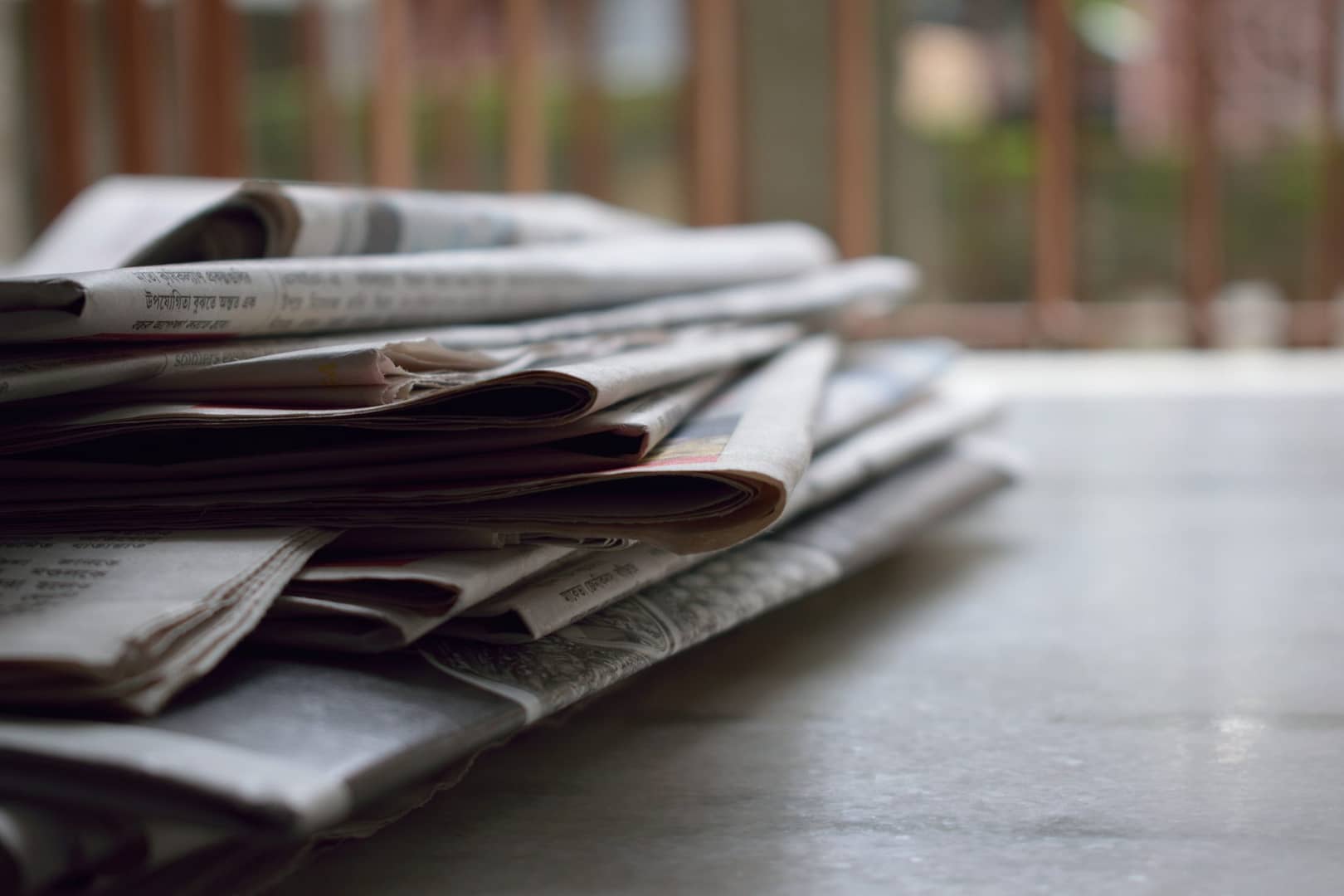[dropcap]D[/dropcap]uring the 2016 Election, the credibility of the news, the candidates, and all of the media as a whole was put into question as the election narrowed down. Ted Cruz, a 2016 presidential candidate, said, “[t]he questions asked in [the Republican Presidential Debate] illustrate why the American people don’t trust the media.” In a perfect world, the news and all media would be clean cut and unbiased, but unfortunately, that is near impossible; especially on the basis of an election. The media shouldn’t be trusted because the views and beliefs of the reporters and media sources are naturally and subconsciously instilled to produce an interpretation or to favor specific ideas.
What is Media Bias?
Media bias is misleading to the public because it changes the way news stories are shared to the world and interpreted. The dictionary definition of media bias is “a political bias in journalistic reporting, in programming selection, or otherwise in mass communications media.” The presence of media bias influences viewers to question a news source’s credibility and start to lose trust in the media. In a Gallup Poll, “32% [of people say] they have a great deal or fair amount of trust in the media. This [has gone] down eight percentage points from last year.” People have therefore started to lose trust in the media or receive distorted information because of its bias.
[perfectpullquote align=”full” bordertop=”false” cite=”” link=”” color=”” class=”” size=””]Buzzfeed occasionally uses loaded words with a left bias in headlines/articles and has failed some fact checks. Buzzfeed has also been known to rush stories that are not verified and then have to retract them.[/perfectpullquote]
Types of Media Bias:
-Leaving out one side of an article to favor a Liberal or Conservative side
-Selecting sources that favor Liberal or Conservative sides, just to say “experts say.”
-Selecting stories that cover a major agenda of either side.
-Placing articles to downplay events that favor a side
-Labeling people as “far right” or “far left”
-Tries to make one side seem wrong
The above list is an adapted version of “Student News Daily”’s list of “Types of Media Bias” and How to Identify Liberal Media Bias by Brent H. Baker, Vice President for Research and Publications at Media Research Center.
Who Portrays Media Bias and Who does it Affect?
Most people use the internet to learn about what is going on in the world, and with some of the major news networks being or becoming biased, it affects the way people view the topic from the beginning. It is not just Liberal ideologies expressed in the media, it is Conservative as well. This was noted by Bernard Goldberg in his New York Times #1 Bestseller: Bias, “if arrogance were a crime, there wouldn’t be enough jail cells in the entire United States to hold all the people in TV news.” Bias is widespread and is subconsciously applied by all groups, most commonly noted in politics.

mohamed1982eg / Pixabay // CC0 “Even CNN was rated, “left bias.””
Liberal Bias
The Liberal media is constantly fired upon for criticism by businesses and the general opposing Conservative. A survey was taken on Buzzfeed, and the majority of people say that it is in fact “left-centred.” Even CNN was rated “left bias.” The same survey says: “Buzzfeed occasionally uses loaded words with a left bias in headlines/articles and has failed some fact checks. Buzzfeed has also been known to rush stories that are not verified and then have to retract them.” A good majority of the media has a tendency to lean toward the Liberal side of the house.
Conservative Bias
Liberals are not the only ones who display media bias, Conservative media sources do as well. The same type of survey was taken by people about The Blaze and it was rated “right bias” because they tend to “publish misleading reports and omit reporting of information that may damage Conservative causes. Some sources in this category may be untrustworthy.” This shows a few of the types of bias, “leaving out one side of an article to favor a Liberal or Conservative side” and “tries to make one side seem wrong.” Proving there also happens to be Conservative bias in the media.
What is a Reporter’s Role?
Rachel Maddow, a host on MSNBC, openly said on the night that President Donald Trump was elected, “you’re awake by the way. You’re not having a terrible, terrible dream. Also, you’re not dead and you haven’t gone to hell. This is your life now. This is our election now. This is us. This is our country. It’s real.” In the 2016 American Presidential Election, many reporters, editing teams, and writers have produced biased opinions that may have influenced the public’s concept of the candidates. A reporter’s job is to report on both sides of a story and to give the public an equal, and untampered with, story of events. With her statement, certain people viewed Mr. Trump’s victory as a devastating thing to happen to this country. Some were okay with Rachel’s statement, but ultimately the same would have resulted if Mrs. Clinton was the victor. The presence of media bias and opinionated news left the public with uncertainty as to what is factual.
[embedyt] https://www.youtube.com/watch?v=LabloPDPtLg[/embedyt]
Can We Trust the Media?
In knowing that media bias exists, it can be hard to decide if anything that originates from the internet is true. In 2013, a poll was taken by the Washington Post, and showing that 28.1% of reporters considered themselves to be a Democrat, only 7.1% claimed to be a Republican, and 64.8% identified as independent or other, possibly leading to the drop in Republicans that trust major media networks. “This is easily the lowest confidence in Republicans in 20 years,” says Gallup News. The same goes for Democrats, as all across the board there has been a drop in trust. In a Gallup poll, the overall trust from people in light of the media had dropped 21% from 1997’s 53%. The answer overall is yes and no, and is highly disputed because the trust put in the media is all based on perspective. The only real thing that we can trust is that the media has bias. One person may trust one provider more than another, or if someone is conscious about the bias of the internet, they’ll be less trusting, and vice versa. Finding a news source that is very neutral and shows both sides to a story is hard to find, as media sources have a tendency to be biased to show and spread an ideology.
[perfectpullquote align=”right” bordertop=”false” cite=”” link=”” color=”” class=”” size=””]The presence of media bias influences viewers to question a news source’s credibility and start to lose trust in the media.[/perfectpullquote]
Should Interpretations be in the News?
The active debate is whether reporters should record their own interpretation of the story. The answer is no, they shouldn’t. The “news’s’” purpose is to tell the events of the world without giving an opinion with it. In fact, when a poll was taken by Pew Research Center, it showed that 59% of people prefer to hear “just the facts” in the media instead of opinionated versions. By keeping opinion away from the news, the flow of information stays true and of factual.
What Can You Do?
Biased media is such an issue that a boycott was started against it, Mad as Hell Boycott. Mad as Hell’s mission is to “remove political bias and political hypocrisy from the reporting in Prime Time News programs and return some level of balance and objectivity in the coverage of News events during the nightly news.” Mad as Hell protests against all media bias, Liberal and Conservative.
Media bias distorts information, and there are many types of bias, most commonly articles that downplay events that favor the Liberal or Conservative side. Note that Liberals aren’t the only ones creating this problem, Conservatives, media outlets and reporters play a large role in all of this too. The media can’t be entirely trusted, so looking for the most neutral sources is beneficial. In a perfect world, the media should be bias free to prevent the spread of false facts and downplayed information. So please, don’t write the sins before you report the tragedies.





TriggerWarning
I felt that this was actually really good. This post remained unbiased and gave just the facts which is what I wish all media did
MongolianThroatS1nger
So, I think, instead of covering news stories. I think CNN should start covering the international throat singing competition. It is held in Lawrence, Kansas. There is no bias in the Throat Signing Community. Also, my father loved throat singing, he left 12 years ago. If you want to contact me to talk about my father or throat singing, hit me up.
Carter
I really liked the writing style in this blog, and thought it has great points.